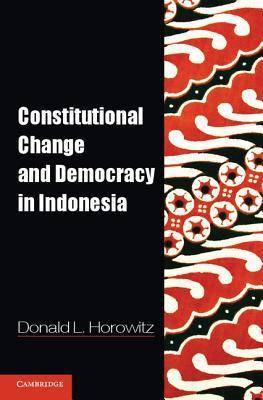


Problems of International Politics
Series · 10 books · 2012-2017
Books in series

#4
Constitutional Change and Democracy in Indonesia
2012
After the fall of its authoritarian regime in 1998, Indonesia pursued an unusual course of democratization. It was insider-dominated and gradualist, and it involved free elections before a lengthy process of constitutional reform. At the end of the process, Indonesia's amended constitution was essentially a new and thoroughly democratic document. By proceeding as they did, the Indonesians averted the conflict that would have arisen between adherents of the old constitution and proponents of radical, immediate reform. Gradual reform also made possible the adoption of institutions that preserved pluralism and pushed politics toward the center. The resulting democracy has a number of prominent flaws, largely attributable to the process chosen, but is a better outcome than the most likely alternatives. Donald L. Horowitz documents the decisions that gave rise to this distinctive constitutional process. He then traces the effects of the new institutions on Indonesian politics and discusses their shortcomings as well as their achievements in steering Indonesia away from the dangers of polarization and violence, all the while placing the Indonesian story in the context of comparative experience with constitutional design and intergroup conflict.

#5
Imperial Rule and the Politics of Nationalism
Anti-Colonial Protest in the French Empire
2013
Why did colonial subjects mobilize for national independence from the French empire? This question has rarely been posed because the answer appears in the modern era, nationalism was bound to confront colonialism. This book argues against taking nationalist mobilization for granted. Contrary to conventional accounts, it shows that nationalism was not the only or even the primary form of anti-colonialism. Drawing on archival sources, comparative historical analysis, and case studies, Lawrence examines the movements for political equality that emerged in the French empire during the first half of the twentieth century. Within twenty years, they had been replaced by movements for national independence in the majority of French colonies, protectorates, and mandates. Lawrence shows that elites in the colonies shifted from demands for egalitarian reforms to calls for independent statehood only where the French refused to grant political rights to colonial subjects. Where rights were granted, colonial subjects opted for further integration and reform. Nationalist discourses became dominant as a consequence of the failure to reform. Mass protests then erupted in full force when French rule was disrupted by war or decolonization.

#6
Counting Islam
Religion, Class, and Elections in Egypt
2014
Why does Islam seem to dominate Egyptian politics, especially when the country's endemic poverty and deep economic inequality would seem to render it promising terrain for a politics of radical redistribution rather than one of religious conservativism? This book argues that the answer lies not in the political unsophistication of voters, the subordination of economic interests to spiritual ones, or the ineptitude of secular and leftist politicians, but in organizational and social factors that shape the opportunities of parties in authoritarian and democratizing systems to reach potential voters. Tracing the performance of Islamists and their rivals in Egyptian elections over the course of almost forty years, this book not only explains why Islamists win elections, but illuminates the possibilities for the emergence in Egypt of the kind of political pluralism that is at the heart of what we expect from democracy.
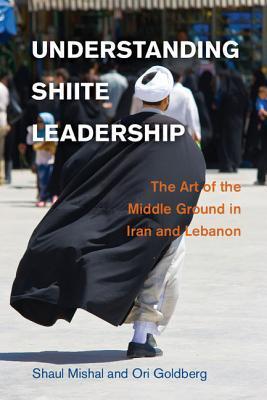
#8
Understanding Shiite Leadership
The Art of the Middle Ground in Iran and Lebanon
2014
In this book, Shaul Mishal and Ori Goldberg explore the ways in which Shiite leaderships in Iran and Lebanon approach themselves and their world. Contrary to the violent and radical image of religious leaderships in the Islamic Republic of Iran and Lebanese Hizballah, the political vision and practice of these leaderships view the world as a middle ground, shying away from absolutist and extremist tendencies. The political leadership assumed by Shiite religious scholars in Iran and Lebanon has transformed Shiite Islam from a marginalized minority to a highly politicized avant garde of Muslim presence, revitalized the practice and causes of political Islam in its struggle for legitimacy and authority, and reshaped the politics of the Middle East and the globe in its image. Utilizing approaches from social theory, history, theology, and literary criticism, the book presents these leaderships as pragmatic, interpretative entities with the potential to form fruitful relationships between Shiite leadership and the non-Shiite world.
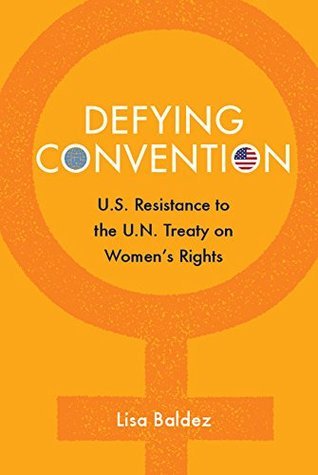
#9
Defying Convention
US Resistance to the UN Treaty on Women's Rights
2014
The Convention on the Elimination of All Forms of Discrimination against Women (CEDAW) articulates what has now become a global norm. CEDAW establishes the moral, civic, and political equality of women; women's right to be free from discrimination and violence; and the responsibility of governments to take positive action to achieve these goals. The United States is not among the 187 countries that have ratified the treaty. To explain why the United States has not ratified CEDAW, this book highlights the emergence of the treaty in the context of the Cold War, the deeply partisan nature of women's rights issues in the United States, and basic disagreements about how human rights treaties work.
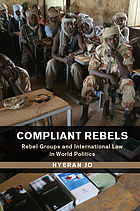
#11
Compliant Rebels
Rebel Groups and International Law in World Politics
2015
Seventeen million people have died in civil wars and rebel violence has disrupted the lives of millions more. In a fascinating contribution to the active literature on civil wars, this book finds that some contemporary rebel groups actually comply with international law amid the brutality of civil conflicts around the world. Rather than celebrating the existence of compliant rebels, the author traces the cause of this phenomenon and argues that compliant rebels emerge when rebel groups seek legitimacy in the eyes of domestic and international audiences that care about humanitarian consequences and human rights. By examining rebel groups' different behaviors such as civilian killing, child soldiering, and allowing access to detention centers, Compliant Rebels offers key messages and policy lessons about engaging rebel groups with an eye toward reducing civilian suffering in war zones.

#12
The Roots of Ethnic Cleansing in Europe
2016
Using a new approach to ethnicity that underscores its relative territoriality, H. Zeynep Bulutgil brings together previously separate arguments that focus on domestic and international factors to offer a coherent theory of what causes ethnic cleansing. The author argues that domestic obstacles based on non-ethnic cleavages usually prevent ethnic cleansing whereas territorial conflict triggers this policy by undermining such obstacles. The empirical analysis combines statistical evaluation based on original data with comprehensive studies of historical cases in Central and Eastern Europe, as well as Bosnia, in the 1990s. The findings demonstrate how socio-economic cleavages curb radical factions within dominant groups whereas territorial wars strengthen these factions and pave the way for ethnic cleansing. The author further explores the theoretical and empirical extensions in the context of Africa. Its theoretical novelty and broad empirical scope make this book highly valuable to scholars of comparative and international politics alike.

#13
The Wartime Origins of Democratization
Civil War, Rebel Governance, and Political Regimes
2016
Why do some countries emerge from civil war more democratic than when they entered into it, while others remain staunchly autocratic? Observers widely depict internal conflict as a pathway to autocracy or state failure, but in fact there is variation in post-civil war regimes. Conventional accounts focus on war outcomes and international peacebuilding, but Huang suggests that postwar regimes have wartime origins, notably in how rebel groups interact with ordinary people as part of war-making. War can have mobilizing effects when rebels engage extensively with civilian populations, catalyzing a bottom-up force for change toward greater political rights. Politics after civil war does not emerge from a blank slate, but reflects the war's institutional and social legacies. The Wartime Origins of Democratization explores these ideas through an original dataset of rebel governance and rigorous comparative case analysis. The findings have far-reaching implications for understanding wartime political orders, statebuilding, and international peacebuilding.
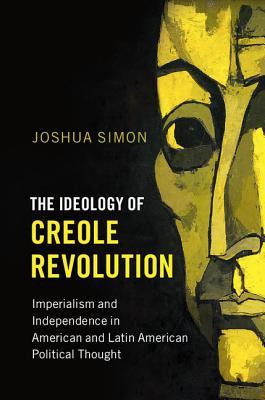
#14
The Ideology of Creole Revolution
Imperialism and Independence in American and Latin American Political Thought
2017
The American and Latin American independence movements emerged from distinctive settings and produced divergent results, but they were animated by similar ideas. Patriotic political theorists throughout the Americas offered analogous critiques of imperial rule, designed comparable constitutions, and expressed common ambitions for their new nations' future relations with one another and the rest of the world. This book adopts a hemispheric perspective on the revolutions that liberated the United States and Spanish America, offering a new interpretation of their most important political ideas. Simon argues that the many points of agreement among various revolutionary political theorists across the Americas can be attributed to the problems they encountered in common as Creoles - that is, as the descendants of European settlers born in the Americas. He illustrates this by comparing the political thought of three Creole Alexander Hamilton of the United States, Simón Bolívar of Venezuela, and Lucas Alamán of Mexico.

#15
Civil War in Syria
Mobilization and Competing Social Orders
2017
In 2011, hundreds of thousands of Syrians marched peacefully to demand democratic reforms. Within months, repression forced them to take arms and set up their own institutions. Two years later, the inclusive nature of the opposition had collapsed, and the PKK and radical jihadist groups rose to prominence. In just a few years, Syria turned into a full-scale civil war involving major regional and world powers. How has the war affected Syrian society? How does the fragmentation of Syria transform social and sectarian hierarchies? How does the war economy work in a country divided between the regime, the insurgency, the PKK and the Islamic State? Written by authors who have previously worked on the Iraqi, Afghan, Kurd, Libyan and Congolese armed conflicts, it includes extensive interviews and direct observations. A unique book, which combines rare field experience of the Syrian conflict with new theoretical insights on the dynamics of civil wars.